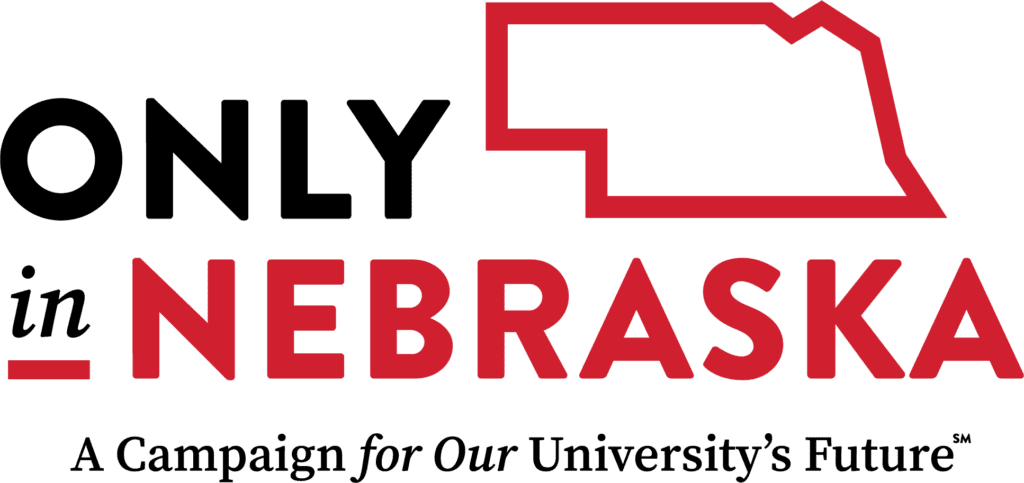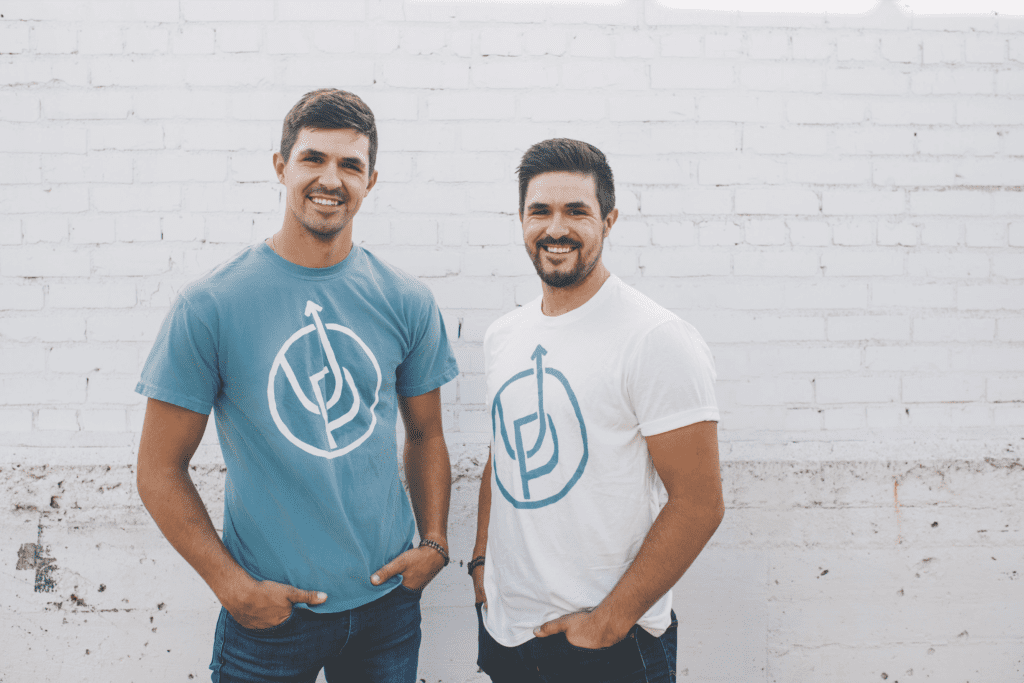While in college, Husker alumni and brothers Matthew Brugger ’19 and Joseph Brugger ’19 of Albion, Nebraska, started their own company, Upstream Farms & Distillery. They credit UNL’s Engler Agribusiness Entrepreneurship Program and scholarships with helping them begin to realize their dreams. Following is a conversation with Matthew and Joseph.
What drew you to attend the University of Nebraska–Lincoln?
Joe: We both initially signed our letter of intent to play football at a smaller college in Nebraska but changed our mind after spending 20 minutes chatting with the director of the (UNL) Engler Agribusiness Entrepreneurship Program. It became clear we could either invest in the next four years or attend the university and invest in the rest of our lives.
What opportunities most influenced your experiences while students at Nebraska?
Matt: Being a part of the Engler Program was one of the most pivotal experiences for me as a young adult. Engler challenged me to think outside of the box when it came to my education and career. The program gave me the tools and autonomy to jump outside of the classroom and learn through experience, failure and success while launching and running our farm-to-table business.
Joe: I agree with Matt. Engler was one of the most influential programs. We also had the opportunity to play in the drumline for the Cornhusker Marching Band which, I have to say, was a lot of fun!
Talk about the impact of the scholarships you received.
Matt: The scholarships we received from the Engler Program and the Susan Buffett Foundation gave us the privilege of financial autonomy to start a business in college without the worry of student loans. The burden of student debt can make it difficult to ideate and implement outside-of-the-box ideas. Because of them, we have been able to have a positive impact in our community after college.
What sparked your interest in becoming entrepreneurs?
Joe: Growing up on a farm, we were always working as a family to bring in revenue to stay afloat. We all played a role helping with chores, washing eggs, bottle-feeding lambs and calves, whatever we could do to bring in extra income for the farm. I remember at one point as 10-year-olds, Matt and I had an idea of putting clay dirt into Ziplock bags and selling it to the farmers north of us with sandy soils to help their crops grow better. While this “groundbreaking” idea never came to fruition, I think growing up in that environment naturally instilled an entrepreneurial spirit in us.
What is your vision for the business and its impact on the community and state?
Matt: When we were younger, I think investing back into a community that invested so much into us was a huge motivation. Watching farms sell and rural communities shrink was hard for us, and we wanted to do something to combat that. As we’ve grown up, we’ve seen rural Nebraska grow, innovate and adapt. However, there is still so much work that can be done.
As the gap between consumers and producers continues to increase, the division between rural and urban grows as well. We believe rural communities have the potential to be vibrant and diverse common spaces for consumers to be connected back to their food and the land and create a more caring and empathetic food system overall. As we’ve grown, our motivations have evolved, but the medium, rural communities, has always stayed the same.
What is your vision for the business and its impact on the community and state?
Joe: Right now, our goal is to take the commodities we grow as farmers and turn them into consumables. Our farm, from the outside, might look like a typical Nebraska farm. We raise corn, rye, soy and cattle. But rather than selling these products on the commodity market, we add value by marketing the all-natural Black Angus beef we raise directly to consumers all over the country.
In addition to this, we have renovated an old milk barn on our farm into a small micro distillery. We have even started sourcing Berkshire pork and homegrown honey from other young farmers involved in the Engler Program to add more diversity to the products we offer. Our end goal with this is to create ease in the market volatility we see as producers, as well as facilitate the building of consumer and producer relationships we envision in the future. Our goal is to be our customers’ personal farmer. Someone they can build a trusted relationship with when it comes to stocking their fridge or freezer. I personally would love to see more young agriculturists take this path with their farms in the future. (Visit upstreamfarms.com, to learn more about Upstream Farms & Distillery.)
What would you say to those who supported the programs that benefited you while students at Nebraska?
Matt: First and foremost, I would say thank you. We can put as many resources into educational and professional development programs as we want, but at the end of the day, students will be able to tap into the creative and innovative parts of their hearts and minds when there isn’t a financial burden of the cost of college hanging over them. The things that make students the best version of themselves are luxuries when shadowed by financial stress. Those who support programs that support students are directly impacting the families and communities of those students who benefit from them. This support matters and is appreciated more than you can know.
Learn more about how to support Nebraska students by visiting nufoundation.org or calling 800-432-3216.







